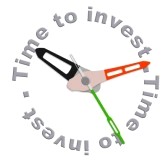
Image Credit: money.usnews.com
The year 2014 will bring some less significant changes to 401(k) and IRA contribution rules. The changes will mainly impact the IRA contribution scheme. The shared changed for retirement plans that brings a bigger saver’s credit threshold is sure to be welcomed by a larger population of taxpayers.
IRA Contribution Limits
The IRA contribution limits will stay the same as 2013 with the worker’s contribution amount fixed at $5500 in 2014. The individuals aged 50 and above can contribute an additional $1000 as a catch up contribution.
The changes in the IRA income limits are as follows:
1) Workers who are entitled to a workplace retirement plan with modified adjusted gross income of $60,000 to $70,000 will not be eligible to file for a tax deduction. The range has been increased from $59,000 to $69,000 last year.
2) Married couples with workplace retirement plans in the range of $96,000 to $116,000 per household will not be able to file for tax deduction as well.
3) Workers who do not have workplace retirement plans, but are married to a spouse who has one, and if their shared income is between $181,000 and $191,000, are not eligible for tax deduction. This range has been increased by $3000 from 2013.
Higher Roth IRA Income Cutoffs
A major highlight of the IRA contribution changes for the year 2014 is the higher Roth IRA income cutoffs. Workers can earn $2000 more ($3000 for couples) in 2014 and still be qualified to contribute towards Roth IRA. Investors who earn more than the adjusted gross income (AGI) phase-out range for Roth IRAs ($114,000 to $129,000 for singles and heads of household and $181,000 to $191,000 for married couples) may still be able to convert traditional IRA assets to a Roth. The only hitch is that the conversion of traditional IRA assets to Roth might be taxed.
Limits for 401(k) Contributions
The limits for 401(k) contributions remain unchanged from 2013. Taxpayers can contribute up to $17,500 to their 401(k), 403(b), most 457 plans and the federal governments Thrift Savings Plan in 2014. The catch-up contribution limit for employees aged 50 and older has been left unchanged at as well $5,500.
Overlapping Changes
A major change in the tax cut off that it will benefit the low and moderate income workers saving in 401 (k)s and IRAs with the eligibility to claim a tax credit of up to $1,000 for individuals and $2,000 for married couples. Couples will be eligible to claim the saver’s credit until their AGI exceeds $60,000 (which is $1,000 up from last year’s $59,000). Moreover, the heads of households can claim the saver’s credit until their AGIs exceeds $45,000, while individuals can claim it until their AGIs reach $30,000.
According to a statement released by the US Internal Revenue Service, the reason for the minor changes in the 401 (k) and IRA rules is due to the fact that inflation, as measured by the consumer price index, did not meet the statutory thresholds for their adjustment. Hence, the contribution caps have not been raised significantly for the year 2014.
About the Author
Rick Pendykoski is the owner of Self Directed Retirement Plans LLC, a retirement planning firm based in Goodyear, AZ. He regularly blogs at Biggerpocket, SocialMediaToday, MoneyForLunch & his own blog where he focuses on retirement planning, investment, securing future related topics.
 Buying and selling land is not the same as flipping houses, but for the right investor it can definitely be a profitable undertaking. In some ways it’s much easier than buying and selling homes, but it can also be more difficult if you don’t know what you’re getting into. Provided you understand the potential pitfalls, however, you should be able to make a pretty penny buying and selling land. Here are a few common mistakes you’ll want to avoid in the process.
Buying and selling land is not the same as flipping houses, but for the right investor it can definitely be a profitable undertaking. In some ways it’s much easier than buying and selling homes, but it can also be more difficult if you don’t know what you’re getting into. Provided you understand the potential pitfalls, however, you should be able to make a pretty penny buying and selling land. Here are a few common mistakes you’ll want to avoid in the process.


